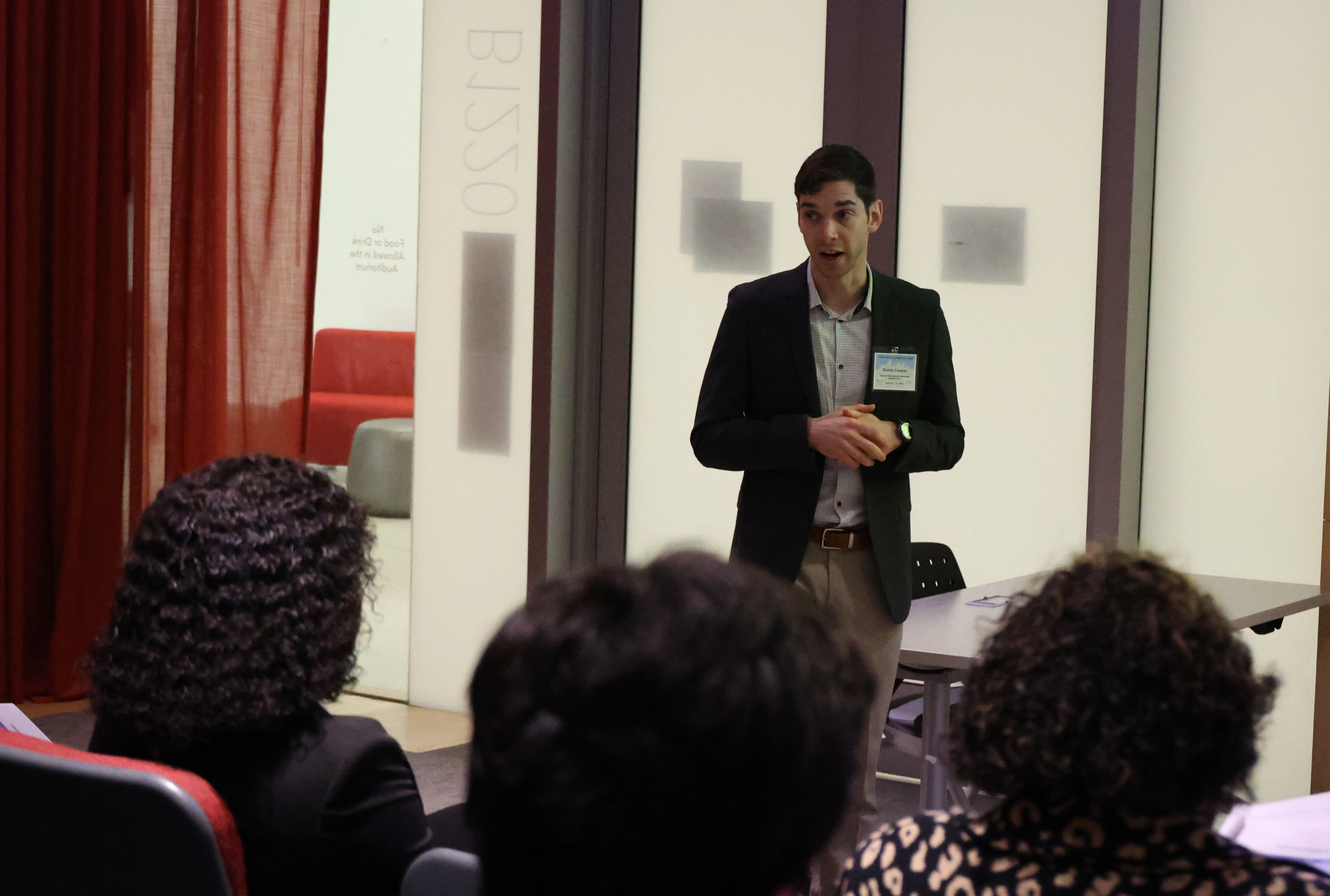The commitment of GW Engineering faculty extends beyond technical education, fostering students’ moral development by instilling a profound awareness of the societal impacts of their designs. This dedication resonated in the theme for the American Society for Engineering Education (ASEE) Middle Atlantic Section’s (MAS) Spring 2024 Conference, “Engineering Education for a Better World,” which was brought to the Science & Engineering Hall by professors in the Department of Engineering Management and Systems Engineering (EMSE) and conference co-chairs, Eric Dano and Joost Santos.
Dating back to 1942, this ASEE section covers a broad geographic area, including from the New York City area to mid-state Pennsylvania and New Jersey, Delaware, Maryland, and Washington, D.C. They host both a spring and fall conference each year for members to exchange knowledge and best practices in engineering education. This spring’s conference, held on April 19 and 20, featured workshops, panel discussions, technical sessions, award ceremonies, and a keynote address, “What I’ve Learned from 40 Years of Teaching Engineering,” given by EMSE professor Jonathan Deason.
Each technical session featured research on a variety of topics, including decision analysis, teaching innovations, engineering competency and ethics, engineering technologies, artificial intelligence/machine learning, and diversity, equity and inclusion. GW Engineering faculty and students showcased their research, ranging from optimizing combat casualty distribution to exploring the role of engineering judgment in engineering education.
Among GW Engineering’s showcased research, EMSE assistant professor Caitlin Grady presented new developments from an ongoing project supported by the National Science Foundation. This project introduces a novel approach to teaching engineering ethics, integrating coupled ethical-epistemic analysis and reflective practice into engineering ethics education.
The panel, “Enhancing Education with LLMs: Innovative Approaches in Engineering Pedagogy,” moderated by Dr. Jason Torres from GW Libraries and Academic Innovation, featured GW professors John Paul Helveston, Lorena Barba, and Ryan Watkins. Panelists explored the potential of LLMs to enhance engineering education, delving into practical strategies for incorporating them in curriculum design, addressing ethical considerations, and envisioning the future of LLM technology in education. Helveston and Watkins are also exploring the technology’s potential as an investigative tool.
Through a rich tapestry of presentations and discussions, the ASEE MAS spring conference underscored the vital role of engineering education in shaping a better future. As GW Engineering faculty continue to push the boundaries of the engineering teaching and learning process, their dedication to fostering a new generation of engineers committed to societal well-being remains unwavering.


